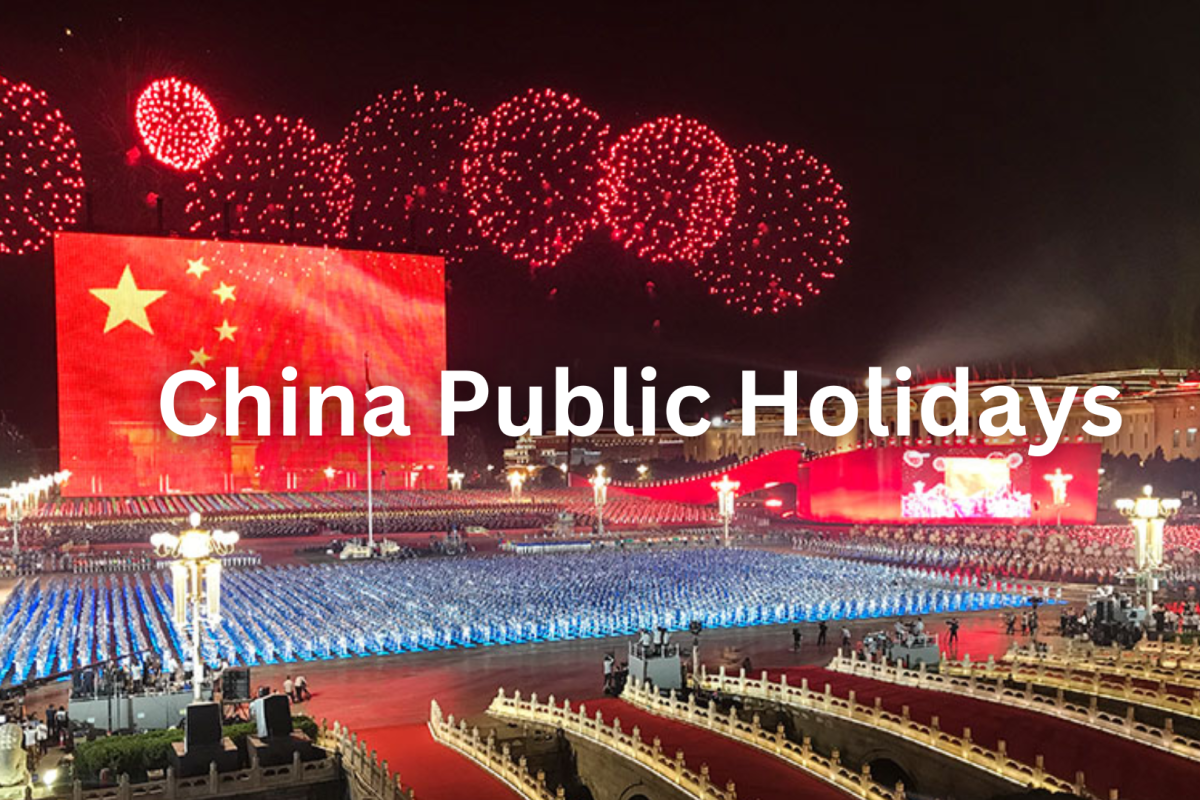China celebrates a wide range of public holidays that reflect its rich cultural heritage and historical significance. For employers managing a workforce in China, particularly through EOR (Employer of Record) or PEO (Professional Employer Organization) services, it is essential to understand these holidays to ensure compliance and foster strong employee relations.
Key Public Holidays in China for 2025
Below is a list of major public holidays in China for 2025, including national celebrations that hold cultural and historical importance:
Date |
Holiday |
Description |
|---|---|---|
January 1 |
New Year’s Day |
A nationwide celebration marking the start of the Gregorian calendar year. |
February 6–12 |
Chinese New Year |
Also known as Spring Festival, this is China’s most important traditional holiday, marking the Lunar New Year. |
April 5 |
Qingming Festival |
Also known as Tomb-Sweeping Day, this holiday honors ancestors by visiting and cleaning their graves. |
May 1 |
Labor Day |
A public holiday dedicated to workers and their contributions to society. |
June 1 |
Children’s Day |
Celebrates the welfare and protection of children, widely observed with activities and events for young ones. |
June 6 |
Dragon Boat Festival |
A traditional holiday commemorating the ancient poet Qu Yuan, featuring dragon boat races and rice dumplings. |
September 10 |
Mid-Autumn Festival |
Also known as the Moon Festival, this holiday celebrates the harvest and family reunions with mooncakes. |
October 1–7 |
National Day Golden Week |
Marks the founding of the People’s Republic of China in 1949, a week-long celebration with parades and events. |
Additional Holidays and Observances
Apart from the major public holidays, China observes other important dates and festivals that may not be official public holidays but hold cultural or regional significance.
Date |
Holiday/Observance |
Description |
|---|---|---|
February 14 |
Valentine’s Day |
Celebrated similarly to the Western version, particularly among younger generations in urban areas. |
March 8 |
International Women’s Day |
Celebrates the achievements of women, often with half-day holidays for female workers. |
July 7 |
Double Seventh Festival |
Known as Chinese Valentine’s Day, this festival celebrates love and romance. |
August 15 |
Ghost Festival |
A traditional festival to honor deceased ancestors, particularly observed in rural regions. |
Understanding Public Holidays for Employers
National vs. Regional Holidays
In China, public holidays are primarily national, meaning they are observed across all provinces. However, there can be variations, especially with regional observances that are celebrated more intensely in specific areas. For instance, the Mid-Autumn Festival is more prominent in southern China, while the Dragon Boat Festival is widely celebrated in areas along the Yangtze River.
Employers managing teams in multiple regions need to be aware of these distinctions to handle leave requests and holiday entitlements properly.
Managing Holidays with EOR/PEO Services
-
Employers Without a Presence in China: Leveraging EOR/PEO services like GlobainePEO simplifies holiday management. These services ensure your business remains compliant with local labor laws regarding time off, holiday pay, and related regulations.
-
Employers with a Chinese Entity: For businesses with an established presence, it’s essential to directly manage public holidays, ensuring employees receive appropriate leave in line with national regulations.
Additional Considerations for Global Employers
-
Holiday Pay: Employers must provide paid time off for statutory holidays. Regulations may also require extra pay for employees who work on these holidays, especially during the Chinese New Year and National Day Golden Week.
-
Leave Requests: Employees may request additional leave around public holidays, especially during the extended celebrations of Chinese New Year and National Day. A clear leave policy helps ensure smooth operations during these peak times.
-
Cultural Sensitivity: Recognizing traditional festivals, such as Dragon Boat and Mid-Autumn Festivals, enhances employer-employee relationships. Celebrating these holidays in the workplace can boost morale and strengthen cultural ties.
-
Impact on Business Operations: During key public holidays like Chinese New Year, businesses across China may close for extended periods, making it essential for employers to plan ahead for potential disruptions in operations.
Final Thoughts
For employers using EOR or PEO services in China, understanding the country’s public holidays is vital for ensuring compliance and employee satisfaction. Planning ahead for key holidays like Chinese New Year and National Day Golden Week can prevent disruptions in business operations while fostering a more harmonious workplace environment.
GlobainePEO – Your Trusted Partner
At GlobainePEO, we help employers navigate the complexities of managing public holidays in Canada. From ensuring compliance with provincial laws to managing holiday schedules, we provide the support your business needs to thrive. Let us handle your workforce management while you focus on growing your business.

